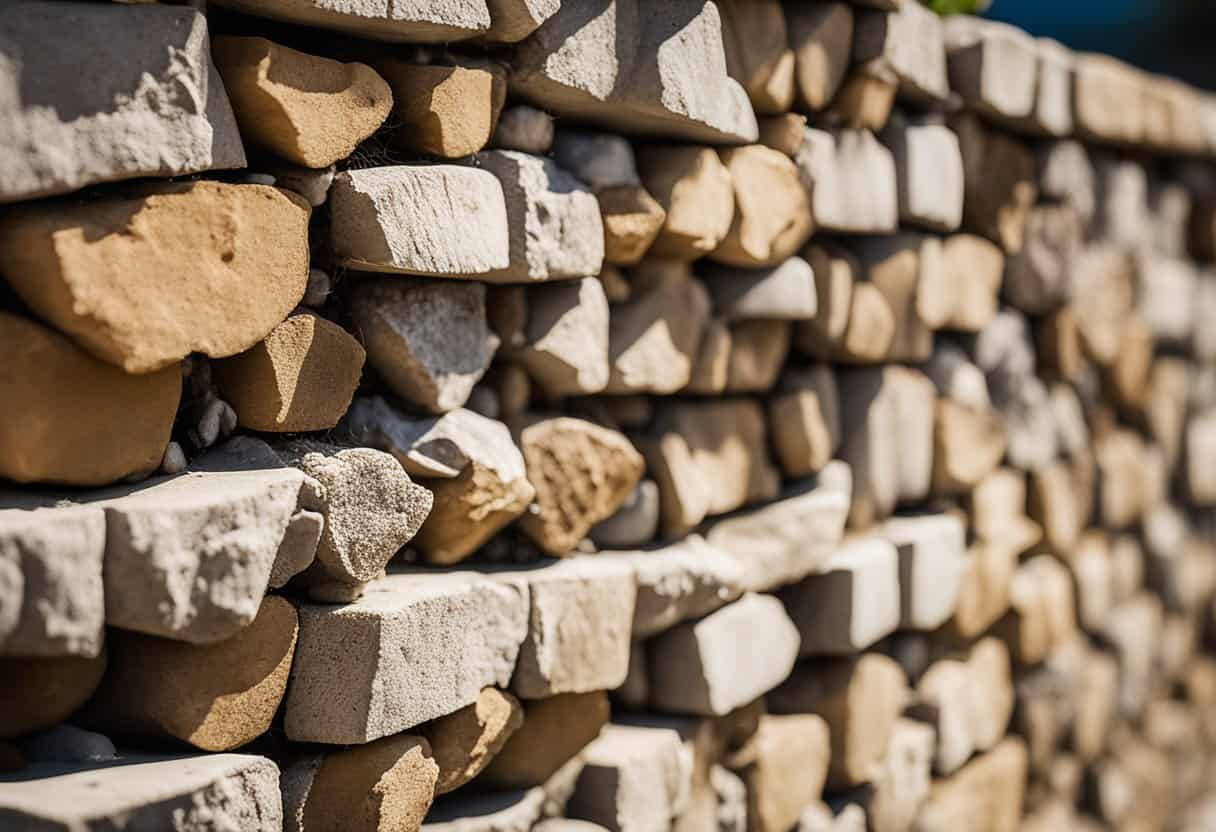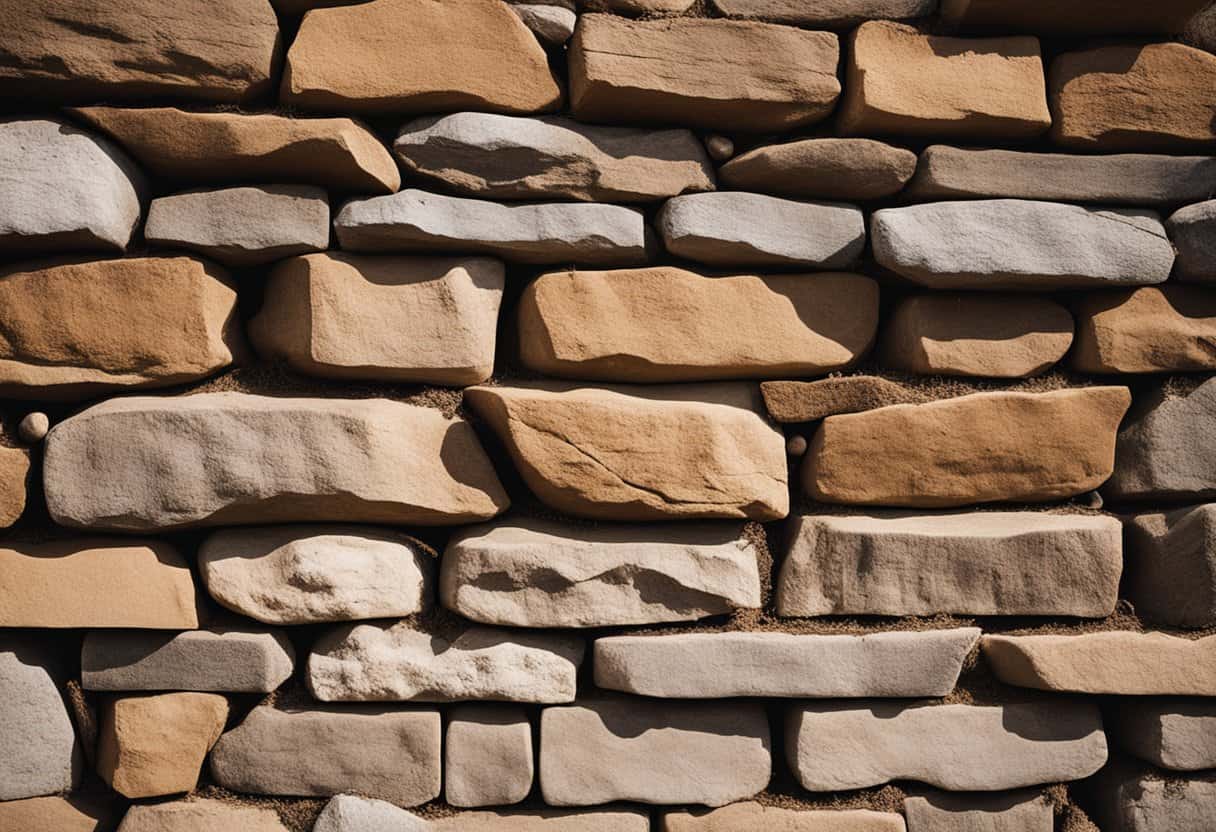Benefits of Retaining Walls

Erosion Prevention
Retaining walls serve a vital function in preventing soil erosion. They help to stabilize the land and keep soil from washing away during heavy rain or water runoff. In addition, they can help prevent flooding and protect surrounding structures in your landscape. With a well-designed retaining wall in place, you can preserve both the beauty and integrity of your outdoor space.
Create More Usable Space in Your Yard
Retaining walls are also useful for creating more usable space in your yard. If your property has a steep slope or uneven terrain, a retaining wall can be used to create flat, level areas for various activities, including planting and entertainment. This not only enhances the functionality and enjoyment of your outdoor space but also adds value to your property in Colorado Springs.
Retaining walls add aesthetic appeal to your landscaping. By working with a professional Colorado Springs retaining wall design and installation service, you can choose from a wide range of materials and styles for your wall to complement your home and garden.
Types of Retaining Walls
Gravity Walls
Gravity walls are a common type found in Colorado Springs. These walls rely on their weight to hold back the soil and generally consist of heavy materials such as stone or concrete. They’re typically used for low heights, as taller walls may require additional reinforcement. Gravity walls might be the preferred option for homeowners who prefer a more natural-looking landscape.
Anchored Walls
Anchored walls provide added support by using anchors placed deep into the ground, often through a layer of soil. These anchors are then attached to the wall via cables or ties, creating a stable structure capable of holding back significant amounts of soil. Anchored walls are commonly used for tall retaining walls or areas where the soil is unstable. Colorado Springs retaining wall contractors can assess your property to determine whether anchored walls are the best fit for your needs.
Cantilevered Walls
Cantilevered walls rely on the strength and support of a concrete base, doubling as a footing. These walls extend further into the soil, transferring the pressure from the wall to the base. Cantilevered walls are efficient for holding back large amounts of soil and can be used in both residential and commercial environments.
Different Types of Retaining Walls – an Overview
Materials for Retaining Walls
Poured Concrete Retaining Walls
Poured concrete walls are strong and offer a sleek look. They are made by pouring concrete into a mold, which then sets and hardens. This type of wall can be found in various designs and can be shaped to fit any landscape.
Concrete Block Retaining Walls
Concrete blocks are versatile. They come in many shapes and sizes, which make them suitable for a wide range of design options. They also provide a sturdy support for your landscape.
Allan Block Retaining Walls
Allan block walls are a popular choice for their unique designs and ease of installation. Made from concrete, they come in a variety of colors and textures to match your landscape’s style. Allan block retaining walls don’t require mortar and feature interlocking blocks.
Stone Retaining Walls
Natural stone retaining walls add a timeless look to your landscape. Stones can be stacked or fitted together for a truly custom design. They provide a durable and visually appealing solution for various landscape needs.
Brick Retaining Walls
Brick walls offer a classic and elegant look. Bricks can be arranged in various patterns to suit each customer’s taste. This type of wall is both sturdy and requires little in the way of maintenance.
Wood Retaining Walls
Wood retains a natural appeal and blends well with the landscape. Timber walls can be made from treated wood to prevent decay, ensuring a long-lasting structure. However, they may not be as durable as other materials like concrete or stone.
Importance of Proper Drainage Behind a Retaining Wall
Retaining walls serve as a barrier to hold back soil and keep it in place. A crucial aspect of retaining wall design is proper drainage. Without it, water can build up behind the wall, leading to issues that may compromise its structural integrity.
Proper drainage helps prevent water from exerting additional pressure on the wall. When water collects behind the wall, it weakens the structure and can cause caving, buckling, or leaning. To avoid these issues, it is essential to include effective drainage systems during the design and installation phase. French drains are often times a good option to whisk water away from behind the wall to prevent pressure and potential failure.
One method for ensuring adequate drainage involves placing a minimum of 12 inches of granular backfill material, such as gravel or a similar aggregate, directly behind the wall. This backfill allows water to freely drain away, reducing pressure on the wall. Compacted native soil can then be used to fill the remaining spaces behind the wall.
Understanding the Need for Proper Drainage Behind a Retaining Wall
Frequently Asked Questions

What is the Most Cost Effective Type of Retaining Wall – Gravity or Anchored?
Gravity walls rely on their weight and mass to hold back soil. They are often made from stone, concrete, or brick. Anchored walls add extra support using cables, rods, or straps anchored into the soil or rock behind. In general, gravity walls are more cost effective due to their simpler design and fewer materials needed. However, the best choice depends on factors like wall height, soil type, and site conditions.
Do I Need a French Drain for My Retaining Wall?
A French drain can help prevent water and soil pressure from damaging your retaining wall. It depends on factors such as soil type, slope, and local rainfall patterns. In some cases, a well-designed and properly installed retaining wall might not need a French drain. It is crucial to consult with a professional retaining wall contractor in Colorado Springs to assess your specific needs.
Are Permits Required for Retaining Walls in Colorado Springs?
Permits may be required for retaining walls in Colorado Springs depending on the height, location, and overall impact. For example, walls over four feet and height or close to property lines are more likely to need a permit. Your retaining wall contractor can guide you through this process.
How Much Does it Cost to Build a Retaining Wall in Colorado Springs?
The cost to build a retaining wall in Colorado Springs varies based on factors like materials, design, height, and labor. Some contractors may offer a free estimate so you can get a clear idea of costs before starting the project. In general, most retaining walls range from $3,000 to $8,000, but higher-end walls, longer walls, and more complex wall installations can cost more.
|
Material |
Price per Square Foot |
|---|---|
|
Stone |
$15 – $40 |
|
Brick |
$10 – $15 |
|
Concrete |
$20 – $25 |
How Long Will it Take Contractors to Build a Retaining Wall in Colorado Springs, Colorado?
The time needed to build a retaining wall in Colorado Springs depends on factors such as the wall’s height, design, materials, and site conditions. In most cases, a simple retaining wall can be built in a few days to a week. Complex or large walls might take several weeks or more.
Retaining Walls
Prevent Erosion and Create More Usable Space on Your Property

DIY Yard Care
Check out our blog for information on how to do upkeep around your yard. Tips and tricks for keeping your lawn, plants and trees healthy.

Colorado Springs Events Calendar
A monthly listing of the events for you and your family to enjoy in and around Colorado Springs

COMPLETE LIST OF ALL SERVICES
All Services
Click a Link Below for More Information About Services Provided
Hardscaping
Curbing
Decks
Fence Maintenance & Install
Fire Pits
Landscape Lighting
Outdoor Kitchens
Patios
Pergolas & Gazebos
Retaining Walls
Walkways
Sprinkler Systems
General
Fall Cleanup-Leaf Removal
Landscape Design
Mulching
Organic Landscaping
Snow Removal
Spring Cleanup
Water Features
Xeriscaping
Trees, Shrubs & Perennials
Flower Beds & Planters
Hedge & Shrub Trimming
Stump Grinding
Tree Planting
Tree Removal
Tree Trimming & Pruning
Lawn Maintenance
Lawn Aeration
Lawn Dethatching
Lawn Edging
Lawn Fertilization
Lawn Mowing
Pest Control
Weed Control
Drainage Issues
Sod & Turf
OUR SERVICE AREA
Serving Colorado Springs and Surrounding Suburbs
The perfect Colorado Springs landscaper for your needs.
For more information, click on your community below
LET’S GET STARTED
Contact Us
Colorado Springs Landscaping Lynx
Phone:
719.695.7180
Email:
operations@coloradolandscapinglynx.com
Hours:
Sun – Sat: 8am – 6pm